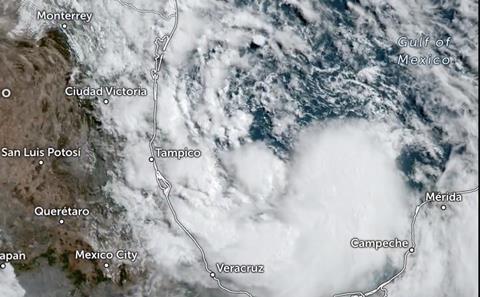Last week Tropical Storm Alberto caused severe flooding across parts of north-east Mexico, cutting power and closing roads inland at the manufacturing cluster around Monterrey. The storm disrupted container and ro-ro shipments to the port of Altamira and also closed the port of Tampico, though both ports are open again now and the storm has been downgraded to a tropical depression.
Cross-border automotive parts shipments to the US through Laredo have also slowed because of the disruption in Mexico and the storm has also left areas of the US gulf coast flooded, including at Galveston.

According to Mike Burkhart, vice-president for Mexico at logistics provider CH Robinson, containerised parts imports through Altamira were affected.
“We move a lot of containers through there for our automotive customers, primarily imports from Europe, Brazil and Argentina,” said Burkhart.
Burkhart said that the port of Altamira was closed on June 19 as the storm approached the coast and there were five ships berthed with 12 more at anchor outside the port and six to arrive over the following days. He said vessels on their way to the port were slowed to avoid the congestion.
“The ships that had already arrived were able to be partially unloaded Wednesday (June 19) but customs is operating in a limited fashion, so some containers are still on board and some are still at the terminals,” said Burkhart last week. Customs was closed and drayage carriers were on hold until the conditions improved.
The port of Altamira is the fourth largest container port in Mexico. It also saw a 33% increase in finished vehicle processing last year, with 456,000 units moved, ranking it the third busiest vehicle handling port by volume in Mexico and the fifth in wider North America. Altamira mainly handles vehicle imports, which increased to more than 429,000 (+27%), but it is also now handling vehicle exports and those increased last year by almost 440% to more than 27,000.
Read more about performance at Mexico’s vehicle handling ports
The port of Tampico is a smaller port but is important for the oil and gas industry.
Impact on road access
Flooding in and around Monterrey, home to a number of vehicle makers and tier suppliers, has been severe, with 636mm recorded by one weather station in the area on June 20. The flooding has hit routes for road freight. The toll road leading into Monterrey closed on June 20 because of mudslides, creating considerable traffic delays on the alternate commercial route that comes into Monterrey and continues north to the US. On June 21 all northbound lanes of the highway were also closed.
“A toll road leading into Monterrey has been closed because of mudslides, leaving intense traffic on the only other main commercial route that comes into Monterrey and continues north to the United States,” said Burkhart. “The carriers we work with in Mexico are hauling as much as they can, but with caution. We’re already seeing less freight coming through our three cross-dock facilities in Laredo, and the number one item that crosses the border at Laredo is auto parts.”
Burkhart added that the Mexico and cross-border rail service was mostly unaffected except for the closure of when one of the two main railroad ramps at Monterrey, where container trains were stuck until the end of last week.
“The carriers we work with are doing their best to keep freight moving, which is essential for just-in-time manufacturing but trucks are having to take a detour that adds eight hours of travel time to get to Monterrey, affecting not only freight that originates there but freight from points south that travels through Monterrey to cross the border,” said Burkhart.
Stay posted for further updates.
Flooding also disrupted the automotive supply chain in Brazil last month


























![Global[1]](https://d3n5uof8vony13.cloudfront.net/Pictures/web/a/d/s/global1_726550.svgz)













No comments yet